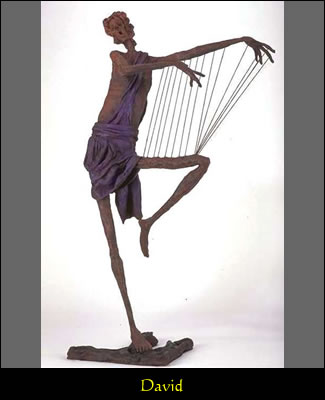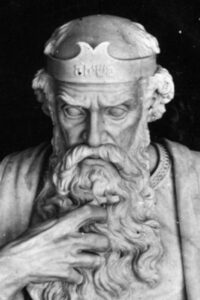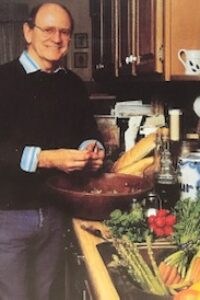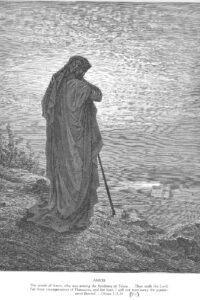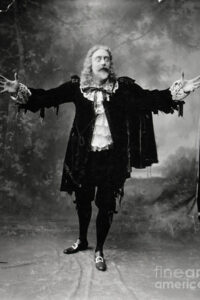Pictured here is the image of a sculpture of David by artist Phillip Ratner on display in The Ratner Museum located in Bethesda, Maryland. I have no idea what inspired Mr. Ratner to envision David in such a fashion, but after seeing his sculpture it is hard to think of David any other way. Music and poetry are so ingrained in his soul that the strings of his instrument have become woven into his flesh.
I have seen a lot of “Davids” in my life—pensive Davids; heroic Davids; lustful Davids; repentant Davids; all legitimate. However, this is the first one I’ve seen to be a joyful, dancing David. The piece captures an exuberance that lifts one off one’s feet, and I believe, depicts a deeper truth to David’s artistic soul.
As I follow David’s life, he never seems to lose the true sense of himself. Here is a man who could so completely loose himself in joyful exuberance that he could strip down to his undergarments and dance “naked” before the Ark of the Covenant as it was escorted into the city of Jerusalem.
The Ark was Israel’s most holy object and for David to become so absorbed by joy was to not only risk complete humiliation but also death. We know what happened to one of the Levites who touched the Ark while being transported to Jerusalem. And don’t forget the villains in “Raiders of the Lost Ark.” Don’t mess with the Ark.
David was roundly condemned by some who completely missed what he was doing. They had no concept that in the depth of his soul, he would risk humiliation and possible death to express the artistic impulse when in the presence of the Almighty.
I’m sure there were gaps in his life when David did not have time for artistic expression. He was a king after all and as Henry IV says in Shakespeare’s play of the same name, “Heavy is the head that wears the crown,” David was busy ruling a nation and it’s hard to find the time to take up the harp and pen when the Philistines come calling.
Still, to the end of his days he could not deny the creative force he held within his soul. It was forged within him and the joy of its expression could not be stifled.

